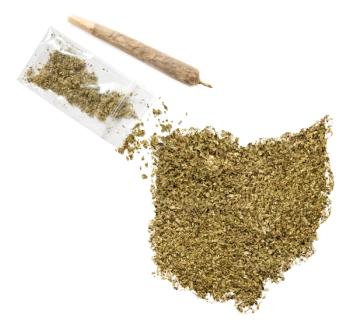
Canadian Multiple Sclerosis Society Invests $1.5 Million in First-Ever Cannabis Research
Canadian MS Society Invests $1.5 Million in Cannabis Research
On March 21, the Multiple Sclerosis Society of Canada announced a partnership with the Canadian Institutes of Health Research to fund research into using cannabis for treating symptoms of MS, and the general effects of cannabis on MS patients (1).
The funding, part of a cannabis research strategy of ten healthcare partners including The Institute of Cancer Research and The Mental Health Commission of Canada, will be ongoing for five years.
Qualified research applications involving basic science, clinical trials, health services and policy research should be sent to www.researchnet.ca by May 15, 2019.
Canada has one of the highest rates of multiple sclerosis in the world, according to the MS Society of Canada, with 11 Canadians diagnosed with MS every day (1).
Worldwide, more than 2.3 million people have a diagnosis of MS. In the United States, a recently completed study by the National MS Society estimated that nearly 1 million people over the age of 18 live with a diagnosis of MS (2).
Most people with MS are diagnosed between the ages of 20 and 49 and the unpredictable effects of the disease last for the rest of their lives.
Talk show host Montel Williams (3), a well-known medical cannabis advocate who also works for cannabis law reform, was 43 when he was diagnosed with MS in 1999 at the height of his career. He uses cannabis to help treat his symptoms.
According to a research paper published by the National Society of MS (4), MS is a chronic disease that affects the central nervous system (CNS), which includes the brain, spinal cord and optic nerves. MS involves an abnormal response of the body’s immune system, which is directed against the person’s own CNS. The immune system targets myelin, a substance that surrounds and insulates nerves. Damaged myelin then forms scars (sclerosis), giving the disease its name, and these scars are thought to be responsible for most of the wide ranging symptoms that people with MS experience.
The National MS Society recommends treatments of one of the FDA-approved "disease-modifying" drugs to help reduce the frequency and severity of MS attacks that may also help slow the progression of the disability (5). Most recently, the FDA approved Mavenclad tablets to treat relapsing forms of MS (6). Side effects of Mavenclad treatment include headaches, common cold symptoms, and low white blood cell counts, which can increase the risk of infections, including that of the herpes virus (shingles or cold sores) (7).
Early indications are that cannabis can be an effective treatment for some of the effects of MS, including spasticity, pain and urinary symptoms (8). But more research is needed. “Future research with randomized controlled studies is necessary in order to determine the efficacy of this medication class,” cannabis and MS researchers wrote in the Journal of the American Academy of Neurology (8). “Recruitment into studies of a drug currently classified as Schedule I in the United States may be difficult due to the stigma attached or the additional burden placed on researchers.”
Disclosures:
References:
https://mssociety.ca/resources/news/article/ms-society-invests-in-cannabis-and-multiples-sclerosis-research https://www.nationalmssociety.org/What-is-MS/MS-FAQ-s https://www.montelwilliams.com/our-founder https://www.nationalmssociety.org/NationalMSSociety/media/MSNationalFiles/Professionals/Cannabis-and-Multiple-Sclerosis.pdf http://www.nationalmssociety.org/NationalMSSociety/media/MSNationalFiles/Brochures/Brochure-The-MS-Disease-Modifying-Medications.pdf https://www.fda.gov/NewsEvents/Newsroom/PressAnnouncements/ucm634837.htm https://multiplesclerosisnewstoday.com/cladribine-for-rrms https://n.neurology.org/content/neurology/82/17/1556.full.pdf
Newsletter
Unlock the latest breakthroughs in cannabis science—subscribe now to get expert insights, research, and industry updates delivered to your inbox.





